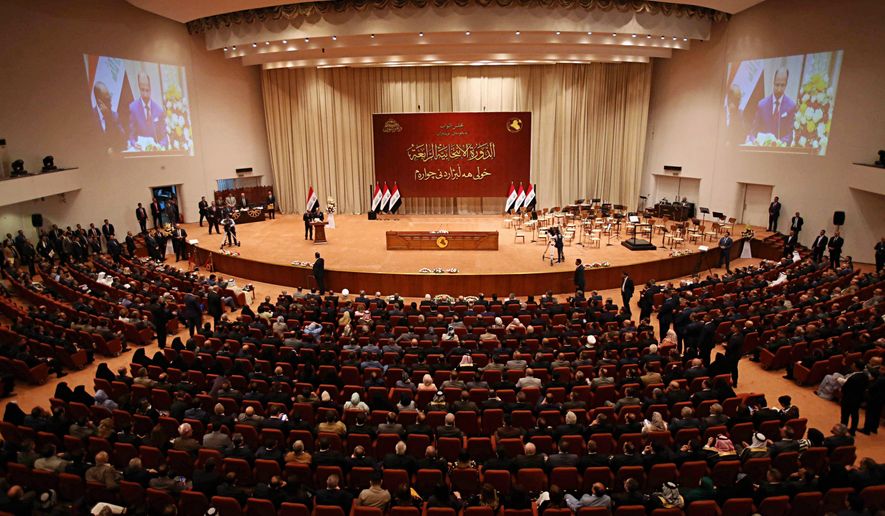Members of the Iraqi Parliament’s Defense and Security Committee announced Tuesday that they are pushing a vote on whether to end the bilateral agreement allowing U.S. forces to remain in country, citing in part U.S. plans to demand more money to underwrite the deployment.
Roughly 5,00 U.S. troops are stationed in Iraq under a limited bilateral military agreement to battle Islamic State elements based in the country.
In a statement issued to local media outlets, the committee members specifically cited Mr. Trump’s demands that allies pay more to support the costs of American troop deployments as a key factor behind the proposed legislation.
“Iraq will not become a milk cow for the U.S. We will not comply with U.S. demands that we pay for U.S. presence in Iraq. We will vote on a law soon requiring the end of foreign forces in Iraq,” committee members said in a statement, Iraqi News Network reported.
The statement comes days after U.S. officials began reportedly drafting a new policy requiring nations where U.S. forces are deployed to pay more for those operations. Dubbed the “Cost plus 50” proposal, it would require host nations to finance all costs tied to U.S. military deployments, plus 50 percent of that total cost as a kind of fee for having American troops on their soil, Bloomberg reports.
Under the new plan, some allies could be expected to pay as much as six times more than the current payments.
The looming vote in Baghdad could derail President Trump’s expressed plan to maintain an American military presence in Iraq, as a bulwark against Iranian efforts to expand its influence. Mr. Trump said last month that the U.S. wanted to maintain its military footprint in Iraq, after spending “a fortune” in establishing that armed presence to support the fight against the Islamic State.
Iraqi President Barham Salih has vehemently criticized Mr. Trump’s remarks, saying Washington had not consulted with Baghdad and that Iraq had no interest in being drawn into a confrontation with neighboring Iran.
“The U.S. is a major power … but do not pursue your own policy priorities, we live here.” Mr. Salih said.
• Carlo Muñoz can be reached at cmunoz@washingtontimes.com.




Please read our comment policy before commenting.